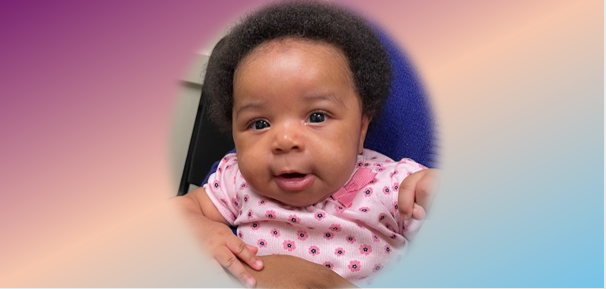
FLA OHT maternal child health strategy
The maternal child health strategy is informed by years of experience in primary care, particularly through listening to patients struggling with complex mental health and addictions. An impactful encounter with a youth who had abstained from crystal meth addiction for six months illustrates this point. When asked about the origins of his addiction, he reflected:
"It all started when I was a teenager. Actually, it all began in childhood. Heck, it probably started when I was a baby, and even when my mom was pregnant. She was all over the place, a big mess."
Importance of pregnancy and early childhood
Emotional Development
Understanding the importance of pregnancy and early childhood is crucial. Dr. Lisa Feldman Barrett's book - "How Emotions Are Made" - delves into the intricate interplay of genetics and the environment in brain development, highlighting critical periods of brain development and the process of neuron tuning and pruning. Socially impoverished conditions can significantly impact this process, as evidenced by studies such as those on infants from Romanian orphanages in the 1960s.
Deprivation
There is remarkable and robust evidence that the roots of physical disease start in utero and early childhood. This knowledge, known as Developmental Origins of Health and Disease (DOHaD) studies, emphasizes the long-term impact of early-life conditions on disease rates like diabetes, hypertension, obesity, and coronary artery disease (CAD).
Adverse Childhood Experiences
We also know that children who experience adversities in childhood have a 6-10 increased likelihood of developing mental health issues later in life. The seminal ACE’s study by Felitti and Anda revealed this in 1998. This is related to growing up in stressed environments and experiencing adverse childhood experiences. Supporting parents in the early days is essential.
The FLA OHT Maternal Child Health Strategy aims to help parents get connected to community supports and resources so they can enter parenthood with a cocoon of care available to them and their children.
Early Childhood Investments
The work of Nobel Prize winning economist, James Heckmann, also supports that early childhood interventions are a good investment. Investments in early childhood ensure lower rates of physical and mental illness which saves money on our health care and social services system but also increase rates of successful completion of high school and entry into the workplace which will add to our taxpayer pool. For every $1 spent in early childhood, there will be a net gain of $13 over the long term.
The Partnership for Well Baby Clinic is Born
In alignment with these principles, the FLA-OHT led by Kingston Community Health Center (KCHC) and in partnership with institutions like Queens School of Nursing, Department of Pediatrics, KFLA Public Health Unit, and Kingston Community Midwives, have developed the Partnership for Well Baby Clinic (PWBC). This clinic, operational since May 2023, provides primary care for infants up to 18 months, reducing parental stress and anxiety and ensuring continuity of care. Families with higher needs are routed to KCHC for rostering.
Attaching Pregnant Women to Primary Care
Additionally, efforts are made to support unattached pregnant women and transition them to family doctors, midwives, or high-risk obstetric services as needed. This is the result of an ongoing collaboration with the Kingston Community Midwives and Queen’s Department of Obstetrics. Families with higher needs are routed to KCHC for rostering. The ultimate goal is to have all pregnant women and children connected to a Primary Care Health Home, offering lifelong continuity of care and reducing healthcare costs.
The current strategy serves as a temporary measure, prioritizing the health of mothers and infants while working towards a comprehensive healthcare model.
References
- Barrett, L. F. (2017). How Emotions Are Made: The Secret Life of the Brain. Houghton Mifflin Harcourt.
- Felitti VJ. The Relation Between Adverse Childhood Experiences and Adult Health: Turning Gold into Lead. Perm J. 2002 Winter;6(1):44-47. doi: 10.7812/TPP/02.994. PMID: 30313011; PMCID: PMC6220625.
- Felitti VJ, Anda RF, Nordenberg D, Williamson DF, Spitz AM, Edwards V, Koss MP, Marks JS. Relationship of childhood abuse and household dysfunction to many of the leading causes of death in adults. The Adverse Childhood Experiences (ACE) Study. Am J Prev Med. 1998 May;14(4):245-58. doi: 10.1016/s0749-3797(98)00017-8. PMID: 9635069.
- Quantifying the Life-cycle Benefits of a Prototypical Early Childhood ProgramJorge Luis García, James J. Heckman, Duncan Ermini Leaf, and María José Prados. NBER Working Paper No. 23479
- Heckman, J. (2008). Schools, Skills, and Synapses. Economic Inquiry, 46(3), 289-324. https://doi.org/10.1111/j.1465-7295.2008.00163.x
- Highet, NJ and the Expert Working Group and Expert Subcommittees (2023) Mental Health Care in the Perinatal Period: Australian Clinical Practice Guideline. Melbourne: Centre of Perinatal Excellence (COPE)
- Lacagnina S. The Developmental Origins of Health and Disease (DOHaD). Am J Lifestyle Med. 2019 Oct 11;14(1):47-50.
- Monk C, Fernández CR. Neuroscience Advances and the Developmental Origins of Health and Disease Research. JAMA Netw Open. 2022;5(4):e229251.
